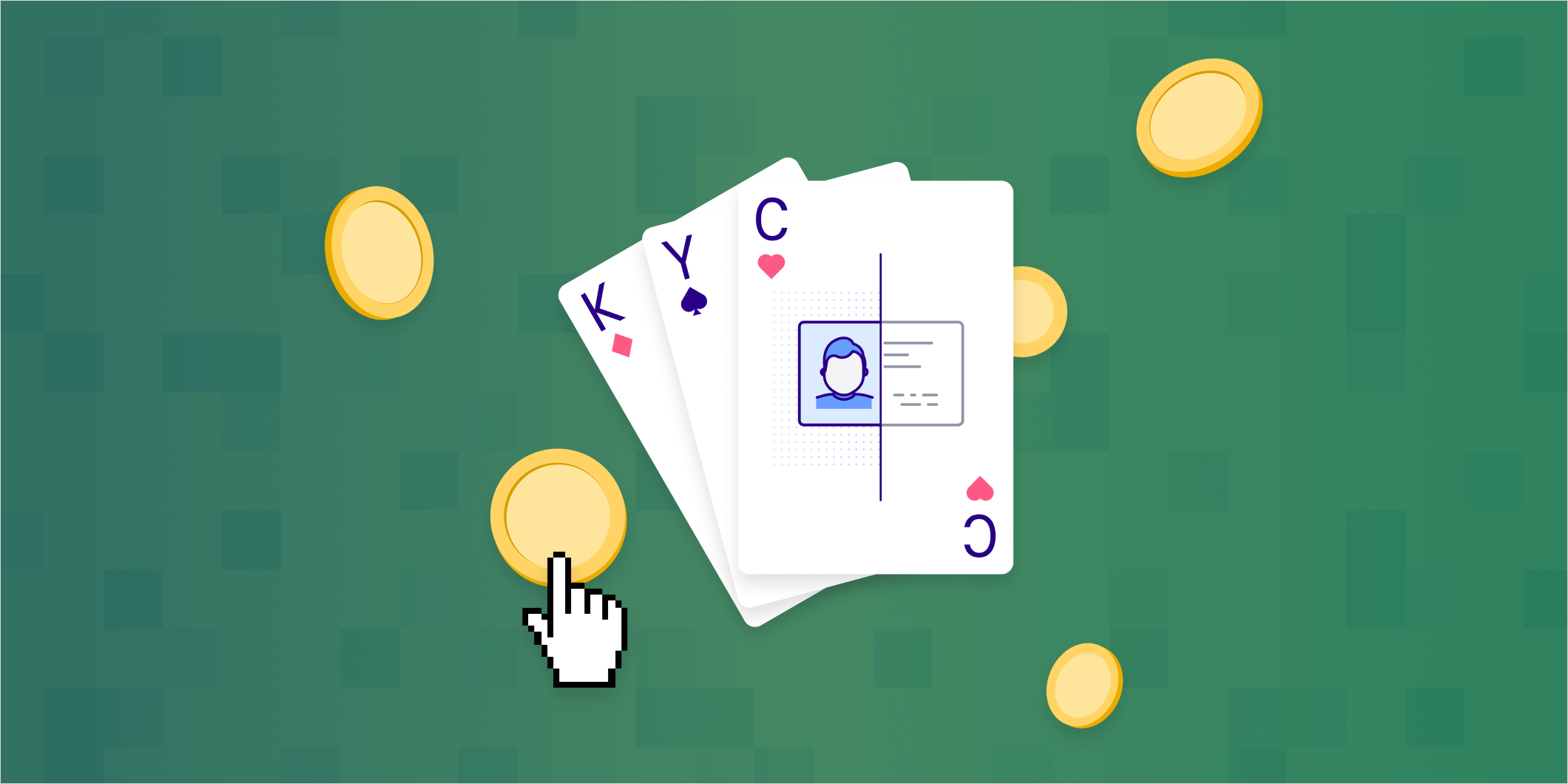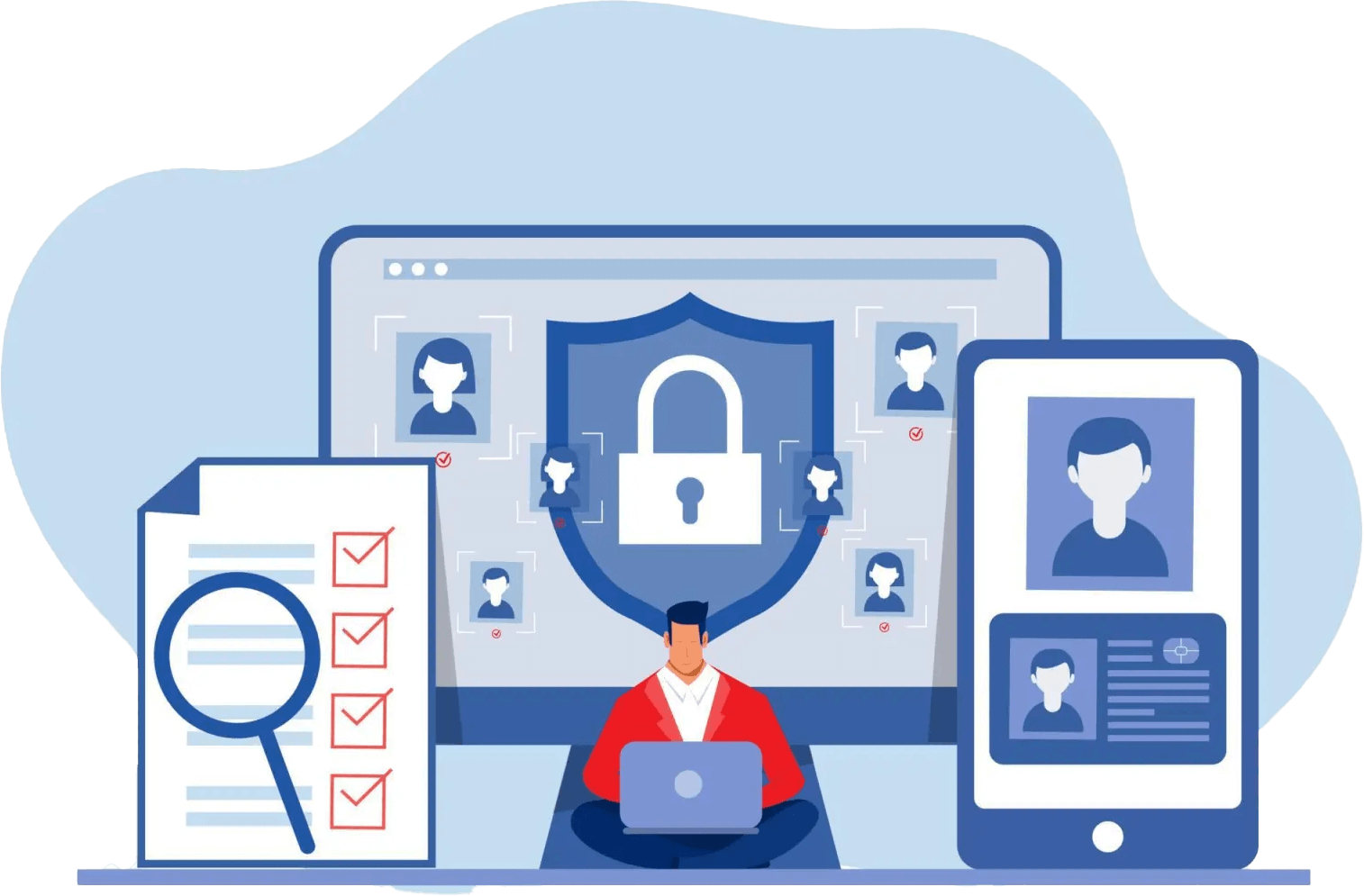Imagine you’re excited to jump into an online platform, ready to engage and have fun. Then, suddenly, you’re stuck uploading a driver’s license, a bank statement, or even a selfie holding your ID. Total mood-killer, right? That’s the identity verification process, and for many users, it feels like hitting a roadblock when you’re already running late. But what if you could bypass all that and dive straight into the action? That’s where no-verification options come in, shaking up the industry. This guide will break down everything about the verification process, why it exists, and why skipping it is gaining traction. We’ve got stats, stories, and expert insights to make it clear. Want to learn more about avoiding verification? Check out the No Verification page.
What is “Know Your Customer”, Anyway?
Online sites may ask you to confirm your identity before you can participate or withdraw funds. This often involves submitting identity documents like a driver’s license, passport, or a bank statement for address confirmation. A 2023 UK report noted that 92% of licensed online platforms in the UK require these checks to ensure compliance and protect users’ funds. It’s a key part of ensuring platforms follow regulations.
The process aims to prevent illicit activities. It stops money launderers from misusing platforms, blocks underage participation, and helps prevent identity theft. For instance, in 2022, a UK regulator fined a company £19.6 million for inadequate anti-money laundering measures. These checks also help operators detect multiple accounts or suspicious activity patterns that could indicate fraud.
However, the system has flaws. A 2024 study by iDenfy found that 15% of identity documents submitted to online providers were fake or stolen. This shows that despite the inconvenience, fraudsters can still bypass the system, prompting interest in alternative options like those listed on certain no-identification pages.
Why It Matters?
| Goal | Why It’s Needed | How It Works |
| Stop Money Laundering | Prevents financial criminals from hiding cash | KYC checks, transaction monitoring |
| Block Underage Gambling | Keeps kids out of the game | Driver’s license, passport |
| Prevent Identity Theft | Protects your personal info | Document verification, address verification |
| Catch Fraud | Spots shady behavior | Betting patterns, ongoing monitoring |
Why Do Casinos Push It So Hard?
Let’s dig into why “Know Your Customer” gaming is such a big deal for online casinos. The online gaming industry has to follow some seriously strict rules, especially when it comes to regulatory compliance. Heavyweights like the UK Gambling Commission want to make sure online gambling platforms aren’t being used by financial criminals for money laundering or terrorist financing. That’s where AML regulations come in, and they’re super serious. Online casino operators have to implement “Know Your Customer” procedures to verify user identities and keep tabs on financial transactions with ongoing monitoring. Mess it up, and they’re looking at fines that could bankrupt a small country—like that £19.6 million one from 2022.
KYC gambling also helps keep things safe for everyone. It stops underage gambling by making sure players are old enough, and it catches identity theft by checking identity documents. Plus, it’s a big part of fraud prevention, spotting things like multiple accounts or suspicious transactions that scream “scam.” It’s all about creating a secure environment where customer’s funds are protected.
But let’s be honest: the KYC process isn’t some magic bullet. That iDenfy study about 15% of identity documents being fake? Yeah, that’s a problem. And while KYC is supposed to help with responsible gambling by tracking betting patterns, a 2023 GambleAware study found that only 12% of gambling operators actually use it to promote responsible gambling. So, if it’s not doing everything it’s supposed to, why put up with the hassle?
The KYC Process: Why It Drives People Nuts
Okay, let’s get real—the identity confirmation process can be a total pain. It’s slow, like waiting-for-your-food-to-microwave slow. Some online platforms take 24–72 hours to confirm your payment details or address authentication documents. If you just won £200 and want to splurge, that wait feels like torture. And the privacy thing? Sharing your driver’s license or bank statement with a platform’s compliance team? That’s enough to make anyone paranoid about identity theft.
Take Sarah, a 30-year-old teacher from Birmingham, who vented on Reddit: “I won £400, and I was over the moon. Then the platform asked for my passport, a bank statement, and a selfie. I felt like I was auditioning for a spy movie! It took three days to get my money, and I was so worried my info would get hacked.” Sarah’s story is super common—Trustpilot reviews of online platforms are full of people griping about slow document authentication.
And here’s another letdown: identity checks are supposed to help with excessive usage by tracking activity patterns, but they’re not exactly killing it. That GambleAware study shows the system’s falling short, which is why users are turning to no-identification platforms, like the ones listed on the main page.
No KYC Verification: The Game-Changer
Now, picture this: you sign up for an online casino with just an email or a crypto wallet, deposit some Bitcoin, and start playing. No driver’s license, no bank statement, no weird selfies. That’s the beauty of No Verification, and it’s blowing up in 2025. These online gambling platforms let you stay anonymous, which is a massive win for anyone who’s over sharing their life story. Want the full scoop? Swing by the No KYC Verification page.
Why’s it such a hit? Speed, for starters. A 2024 CryptoNews report says No ID Verification casinos process withdrawals in under 10 minutes, compared to 24–72 hours for sites. That’s like the difference between a quick text and writing a novel. Plus, with online gambling booming—Statista pegs the global market at $97 billion in 2024—players are flocking to gambling platforms that cut the red tape.
Meet Mike, a 35-year-old coder from London who’s all about No KYC. “I used to waste hours uploading my driver’s license and bank statement,” he says. “Now, I use Ethereum, play, and cash out in minutes. It’s like ordering takeout—no drama.” Mike’s not alone: a 2025 99Bitcoins survey found that 74% of players prefer online casinos that skip KYC procedures for speed and privacy.
KYC vs. No KYC: The Breakdown
| Feature | KYC Casinos | No KYC Casinos |
| Withdrawal Speed | 24–72 hours | Under 10 minutes |
| Privacy | Low (you’re sharing identity data) | High (just an email or crypto wallet) |
| Sign-Up Hassle | 25% bail because of KYC | 5% drop-off rate |
| Scam Risk | 3% (2024 data) | 10% (stick to licensed sites!) |
| Responsible Gambling | Tracks betting patterns | You set your own limits |
What the Experts Think
We reached out to some heavy hitters in the gaming industry for their take. Emma Thompson, a compliance officer with 15 years at online casino operators, says, “KYC gambling is crucial for regulatory compliance and stopping things like terrorist financing. But Verification can work if platforms are licensed and use strong transaction monitoring.” Emma’s worked with big names like William Hill, so she’s seen it all.
On the flip side, James Carter, a crypto gambling expert who runs CryptoBet, is team No KYC. “The process is overhyped,” he says. “Blockchain-based fraud detection on No ID Verification platforms is often better than traditional “Know Your Customer” checks.” James backs it up with a 2024 Chainalysis study showing a 22% drop in suspicious transactions on crypto gambling platforms thanks to ongoing monitoring.
But not everyone’s jumping on the bandwagon. Rachel Lee, a lawyer specializing in AML regulations, warns, “Verification can attract money launderers, especially in high-risk countries. Without AML, it’s hard to ensure compliance.” Rachel thinks new tech like biometric authentication could make No KYC safer, pointing to a 2024 Deloitte report.
The Numbers Tell the Story
Let’s hit you with some stats to show why that Verification is taking over. A 2025 Techopedia report says 62% of online gaming happens on gambling platforms that take crypto, and 80% of those skip KYC in online casinos. That’s massive! Meanwhile, KYC regulations are getting tougher—Stake Casino made KYC checks mandatory in January 2025, and players were not happy. A Reddit thread with 1,200 upvotes called it “a privacy disaster.”
Here’s another crazy fact: online gaming providers with KYC measures lose 25% of potential sign-ups because of the hassle, per a 2024 CasinoBeats study. No KYC Verification sites, on the other hand, saw a 40% spike in user accounts last year. And when it comes to financial crime, it doesn’t mean no safety. Licensed gambling operators like CoinCasino use risk assessment and transaction monitoring to catch suspicious transactions without needing your identity data.
Payment methods matter too. A 2025 ValueWalk review of 50 online casinos found that Verification platforms like Lucky Block and BetPanda had zero fees and instant payment details processing. Compare that to sites, where 30% charge withdrawal fees, and it’s no wonder players are switching.
How to Get Started with No KYC
Wanna give No ID Verification a shot? It’s ridiculously simple. Check out trusted online gambling sites on the main page or No ID Verification page. You’ll usually just need an email or a crypto wallet for account registration—no funds verification or document verification required. Deposit some Bitcoin, Ethereum, or another payment method, and you’re in. Withdrawals? Send the funds to your wallet, and they’re yours in minutes.
But here’s the deal: you’ve gotta stick to licensed gambling operators. A 2024 Cryptonews report found that 10% of No KYC casinos were scams, compared to 3% of KYC ones. Platforms regulated by Curaçao or Malta use transaction monitoring and risk assessment to prevent fraud, so you’re not left hanging.
The Risks You Gotta Watch Out For
No-verification platforms have their downsides. Without identity checks, there’s a higher risk of encountering untrustworthy online sites. That 10% scam rate is real, so sticking to licensed platforms is crucial. The No Verification page lists reliable options to help you stay safe.
Responsible usage is another consideration. Verification processes can help platforms identify problematic behavior by monitoring activity patterns, but no-verification sites leave that responsibility to you. If you’re concerned about over-engagement, consider setting personal limits or seeking support. A 2023 study showed only 12% of operators effectively address excessive usage, so both systems need improvement.
Additionally, no-verification platforms might attract financial criminals exploiting lax measures. Licensed platforms counter this with continuous monitoring and risk assessment, but users still need to be cautious, especially in high-risk regions.
What’s Next for the Online Gaming Industry?
The online industry is booming, with the global market projected to reach $112 billion by 2026, according to Statista. No-verification platforms are gaining popularity, driven by users who prioritize privacy and speed. Emerging technologies like biometric authentication and AI-powered transaction monitoring could enhance the safety of these platforms, reducing reliance on traditional identity verification processes.
However, regulators are staying active. Authorities are advocating for stricter anti-money laundering regulations, which could lead to increased verification requirements in the future. A 2025 industry survey indicates that 65% of users want a balanced approach—fewer verification steps for low-risk individuals and stricter checks for high-risk cases. It’s a ongoing tension between privacy and security, and it will be interesting to see how the balance shifts.
Conclusion
Identity authentication in online platforms is designed to maintain integrity—preventing money laundering, protecting against underage participation, and combating financial crime. But let’s be real: the process can be a total drag, with slow document confirmation and privacy concerns that make you second-guess everything. No-identification options are the rebels shaking things up, offering speed, privacy, and a hassle-free experience that’s hard to beat. Sure, there are risks like scams or less robust tools for responsible usage, but sticking to licensed platforms keeps you in the clear.
Whether you’re just exploring or fully committed, you’ve got choices: deal with identity checks or go bold with no-ID options. Check out the main page, no-identification page, or no-ID authentication page for all the details. The online industry is evolving rapidly, and it’s an exciting time to be involved. Let’s dive in!


